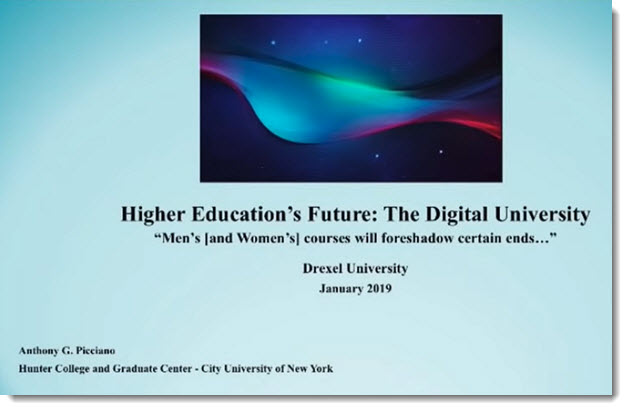Inspiring Leaders | Anthony G. Picciano — from virtuallyinspired.org
Co-founder of CUNY Online and founding member of the Online Learning Consortium, shares his insights on his new book, “Online Education: Foundations, Planning, and Pedagogy,” building a community in an online classroom, gaming and more.
Excerpts/items mentioned in this video:
- Research Initiative for Teaching Effectiveness, University of Central Florida
- Reports from the Babson Survey Research Group, Babson College
- 2010 U.S. Dept of Education meta-analysis — older now, but still a pivotal study
- Tap into what students already know; have students bring their own experiences into the topics/discussions; bring their own materials and interests
- Have students own the course as much as possible
- Limit the amount of lecturing — introduce humor where possible; tap into students’ interests
- Chunk lecturing up into 6-8 minute pieces — then introduce some activity that forces the students to do something
- The River City — Chris Dede (mainly for high school students)
- MIT elude — how to deal w/ depression
- Fortnite
- Elegance in simplicity — clean format, where things are, streamlined –6-7 clearly-labeled buttons, I understand what I have to do here; make it simple, not complex; use techs where makes good pedagogical sense
- Future: AI, nanotechnology will lead to more quantum computing, cloud computing
Quantum computing is a whole of the level of digital circuitry design. That will allow much more power, much more speed, the likes of which we have not seen in digital technology. When that comes, that opens up lots of other possibilities in applications like artificial intelligence, like robotics, like cloud computing. All of these will be significantly enhanced as we move to a quantum computing type environment. When that happens, we will see a whole other level of digital activity not just in teaching and learning but everything we do.
Also see:









